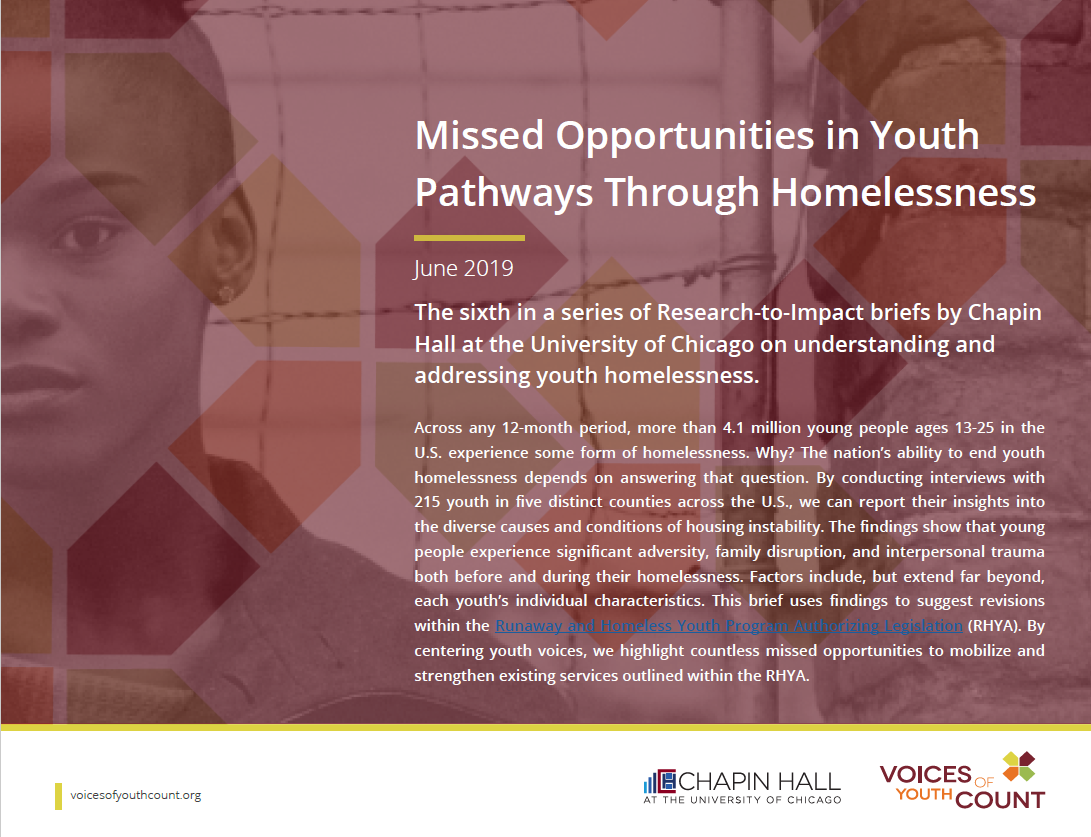
Missed Opportunities in
Youth Pathways Through Homelessness
Sixth in a series of Research-to-Impact briefs by Chapin Hall, Missed Opportunities in Youth Pathways Through Homelessness reflects findings from in-depth interviews conducted with 215 young people in the largest qualitative study on youth homelessness in the U.S.
From young people in five U.S. counties, we learned that their stories of homelessness most often began with early housing instability and family disruptions, including family homelessness and entrance into foster care. Young people also experienced significant personal losses before and during their pathways through homelessness, including the death of parents and caregivers. Furthermore, youth cycled between many types of sleeping arrangements: from being on the street, to couch surfing, to staying in shelters. Their experience was influenced both by their personal relationships and whether they had someone to stay with, and structural factors, such as the availability of shelter beds. By identifying the common experiences that lead to homelessness, we also identify where, when, and with whom we need to intervene to prevent homelessness.
Download the full brief (PDF)
Download the overview (PDF)



